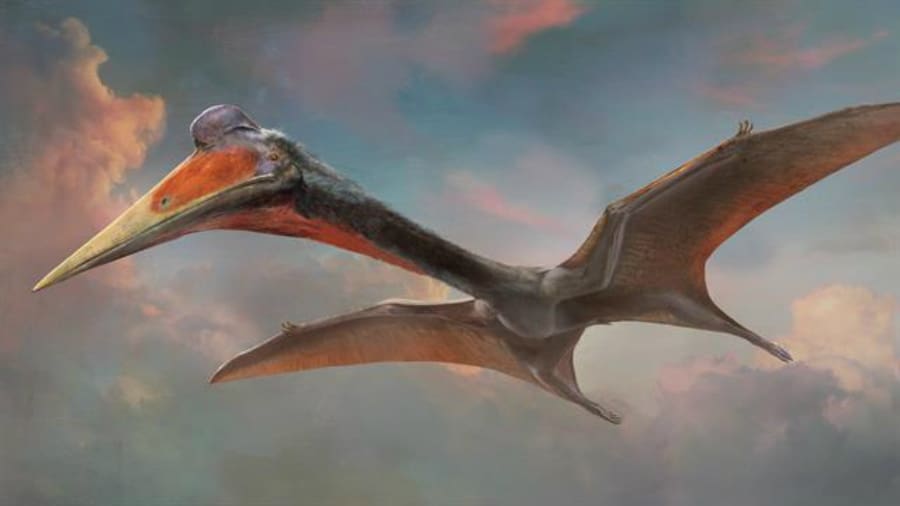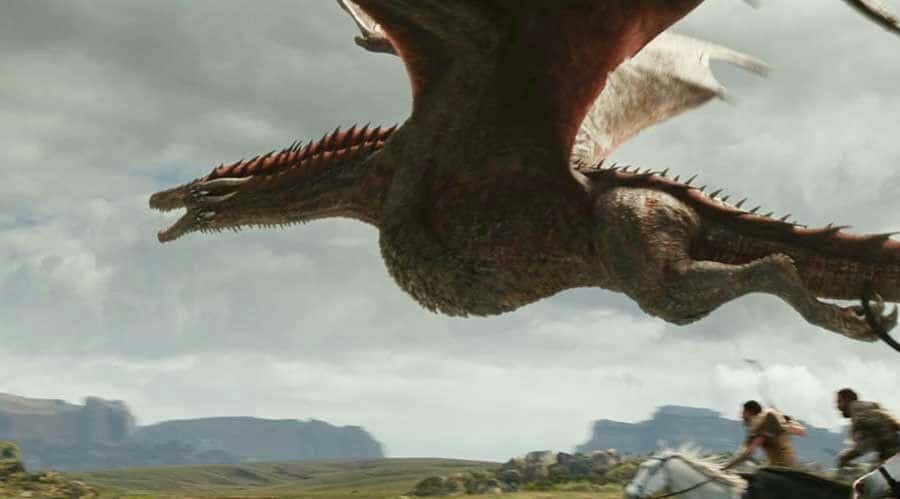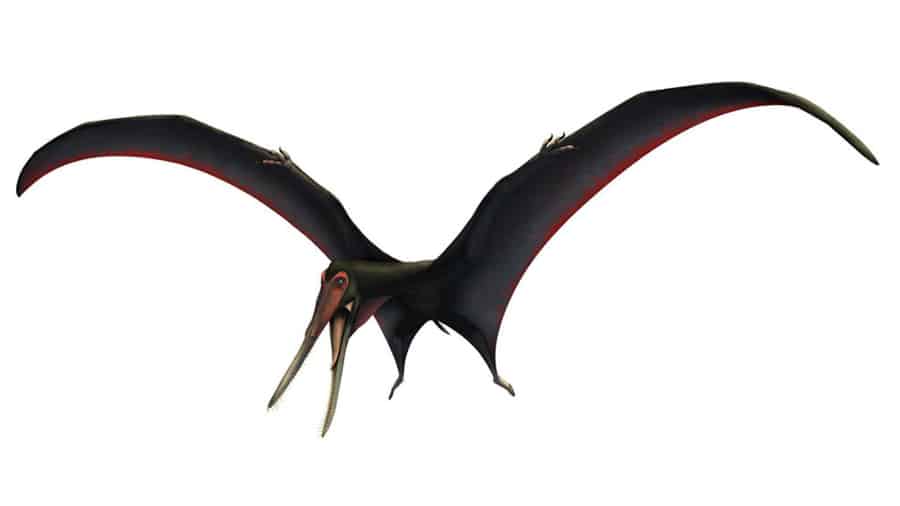When we saw dragons on Game of Thrones, we didn’t believe they could be real enough to fly in flesh and bones; just like most characters in Westeros thought. It’s a myth of the folklore, a tale of the fool to intrigue us all. Well, reality surprised everyone. Now, it’s time for a real surprise though. According to National Geographic, a prehistoric species of flying reptiles called Pterosaurs has got a brand-new line added to its heritage. And the nomenclature is inspired by the ever so popular sensation, Game of Thrones.
A paleontologists’ report in the journal Historical Biology reports that “a fossilized creature with oddly dark bones has emerged as the first of its name in a newly described line of toothy pterosaurs.” The new line has been named Targaryendraco wiedenrothi, after House Targaryen and its dragons from Game of Thrones. The report also suggests that it is the most complete pterosaur found in Germany from the Cretaceous period of the Mesozoic Era, roughly about 145-66 million years ago. The fossil includes its ribs, wings, and jaws.
The team has also found six previously known pterosaurs to be closely related to the new group; thus, they have added them to the Targaryendraconia group. Members of this group had wings that spanned between 10 to 26 feet with unusually narrow snouts (nose & mouth stuck outwards) that ended in teeth jutting forward from the jaw.

Rodrigo Pêgas, a paleontologist at Universidade Federal do ABC in Sao Bernardo do Campo, Brazil led the study and identified some key features for us. “All these species are from shallow coastal environments (such as Brazil, England, Australia) and probably fed on fish. The slenderness of jaw is the main feature they share… it’s the extreme slenderness in the jaws of any toothed pterosaurs,” he noted.
Taissa Rodrigues, a pterosaur expert, said, “The naming of Targaryendraco crowns the recognition of an overlooked lineage of flying reptiles…that lived for millions of years during the Cretaceous.” She was not a part of the study.
The dark fossils of their study made the authors remember the black bones of the dragons of House Targaryen. Furthermore, the pterosaurs found their way into George R.R. Martin’s imagination of dragons and eventually into Game of Thrones, the report believes. They said that while dragons are depicted in books, films or artwork in general with six limbs: four legs and two wings, it doesn’t make any biological sense. According to Pêgas, there is no knowledge of the existence of a vertebrate creature with as many limbs in this order.

George R. R. Martin took notice of these real creatures who inhabited the Earth a long, long time ago. His dragons, thus, have four limbs: two wings for forelimbs and two hind legs, anatomy similar to pterosaurs. Pêgas found this attention-to-detail very admirable. “I always thought this was very nice, especially because I work on pterosaurs.” Does it make him a fan of the series? “I am a big nerd and a big fan of Game of Thrones,” he admitted. And just for context, the naming of the pterosaur species as Targaryendraco has made it a case of reality-affecting-fiction-affecting-reality. We have come a full circle.
Since we are admiring details, here’s a side note: Pterosaurs are often mistaken for dinosaurs. Although both shared a common ancestor, they evolved quite differently and thus are different species. The modern birds have not descended from pterosaurs; rather from small, feathered dinosaurs.
Speaking of overlooked and misunderstood species, we know that dragons and Targaryens will be shown in a wholesome light in the fantasy world as well when House of the Dragon arrives. This new addition to science is another welcome sign for the Game of Thrones spinoff series. The release is still far away (in 2022) but then the pterosaurs flew millions of years ago. So, we think we’ll wait. What are your thoughts? Tell us in the comments.




















![[Book Review] The Blade Itself (The First Law Trilogy) by Joe Abercrombie](https://bendthekneegot.com/wp-content/uploads/2018/01/1516047103_maxresdefault-218x150.jpg)

















